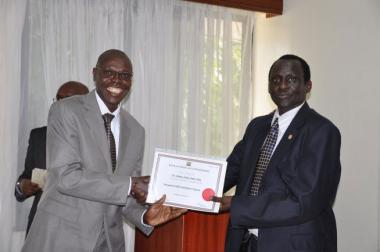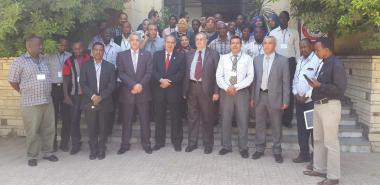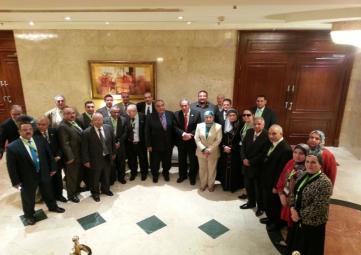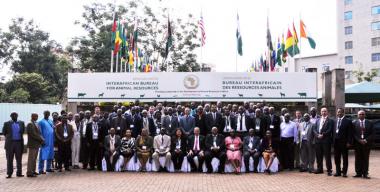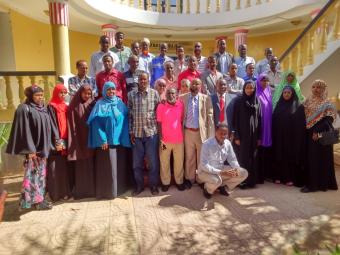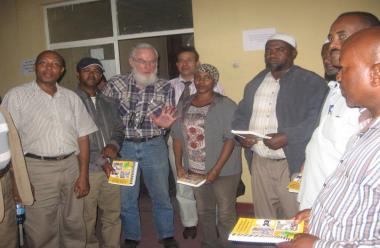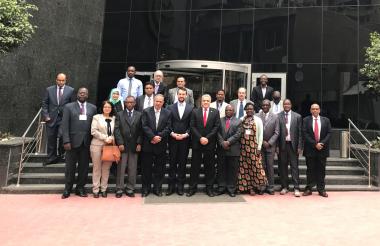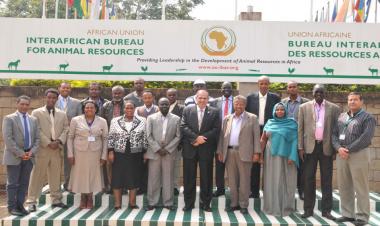The Second Session of the Committee on Agriculture (COAG) Sub-Committee on Livestock was held from 16 to 18 July 2024 at FAO headquarters in Rome, utilizing a hybrid format. During this session, delegates discussed several agenda items related to the three main thematic areas of the Sub-Committee’s Multi-Year Programme of Work (2022-2025):
1. Sustainable Livestock Systems for Food Security, Nutrition, and Inclusive Economic Growth
2. Animal, Public, and Environmental Health through the One Health Approach
3. Natural Resource Use, Climate Change, and Biodiversity
Additionally, other matters on the agenda included the review of the Multi-Year Programme of Work 2024–2027 and the alignment of the Rules of Procedure of the COAG Sub-Committee on Livestock with those of COAG.
Key Discussions and Outcomes
The session highlighted the crucial role of sustainable livestock systems in achieving food security, nutrition, and inclusive economic growth. It emphasized the need for integrated approaches to managing forests, trees, and livestock in dryland silvopastoral systems and effective management of soil, land, and water resources for sustainable livestock production. The One Health approach, addressing animal, public, and environmental health, was a central theme, focusing on the interconnections between these areas.
AU-IBAR's Contributions
Implementing the Livestock Development Strategy for Africa (LiDeSA)
Dr. Huyam Salih, Director of AU-IBAR, played a significant role in the session, participating in two major engagements:
Presentation on Implementing the Livestock Development Strategy for Africa (LiDeSA)
Dr. Salih presented at the Partners Event on 18 July 2024, highlighting AU-IBAR's efforts to implement LiDeSA, developed in 2015. The strategy aims to transform the African livestock sector to enhance socio-economic development. She outlined LiDeSA’s four strategic objectives: attracting investments along livestock value chains, enhancing animal health, increasing production and productivity, fostering innovation and technology, and improving market access and value addition.
It was noted that AU-IBAR has initiated several projects to support these objectives, including the Livestock Sustainable Value Chains to Africa and Animal Genetic Resources Improvement in Africa, both sponsored by the EU. However, she stressed that despite progress, challenges such as low visibility, advocacy, and lack of effective monitoring and evaluation hinder LiDeSA's implementation. To address these, it was noted that AU-IBAR is undertaking eight steps, including establishing a performance dashboard, developing a monitoring and evaluation framework, aligning strategic plans with LiDeSA, and planning a conference on sustainable animal resources development in 2028.
Participation in the EU Side Event on Animal Welfare
Dr. Salih also engaged in a panel discussion at the EU side event focused on "EU Animal Welfare Policies in the International Context." The event provided an opportunity to discuss a recently adopted legislative proposal on the protection of animals during transport and the sustainability of livestock management. Dr. Salih emphasized the importance of international cooperation in animal welfare policies, particularly in Africa. She highlighted the need for standardized animal welfare practices, improved food safety, quality, and addressing environmental impacts.
She pointed out that many African countries have aligned their national policies with the Animal Welfare Strategy for Africa (AWASA) and stressed the importance of capacity building to enhance trade agreements and mitigate negative impacts on animal welfare, human health, and environmental health. She underscored the holistic approach to animal welfare, which can significantly impact the economic status of farmers and promote environmental sustainability. The upcoming Animal Welfare Conference for Africa in September 2024, themed "Partnership to Improve Animal Welfare for Environmental Sustainability," was highlighted as a key initiative for knowledge sharing.
Conclusion
The Second Session of the COAG Sub-Committee on Livestock underscored the critical role of livestock in achieving food security, economic growth, and sustainable development. AU-IBAR's active participation, led by Dr. Huyam Salih, showcased the organization’s commitment to implementing LiDeSA and enhancing animal welfare standards across Africa. The discussions and outcomes from this session will contribute to more robust policies and collaborative efforts to address global challenges in livestock management, ensuring a sustainable and prosperous future for the sector.
Access the Link to the COAG Sub-Committee on Livestock #2 - Day 3 Morning (Partners Events)

